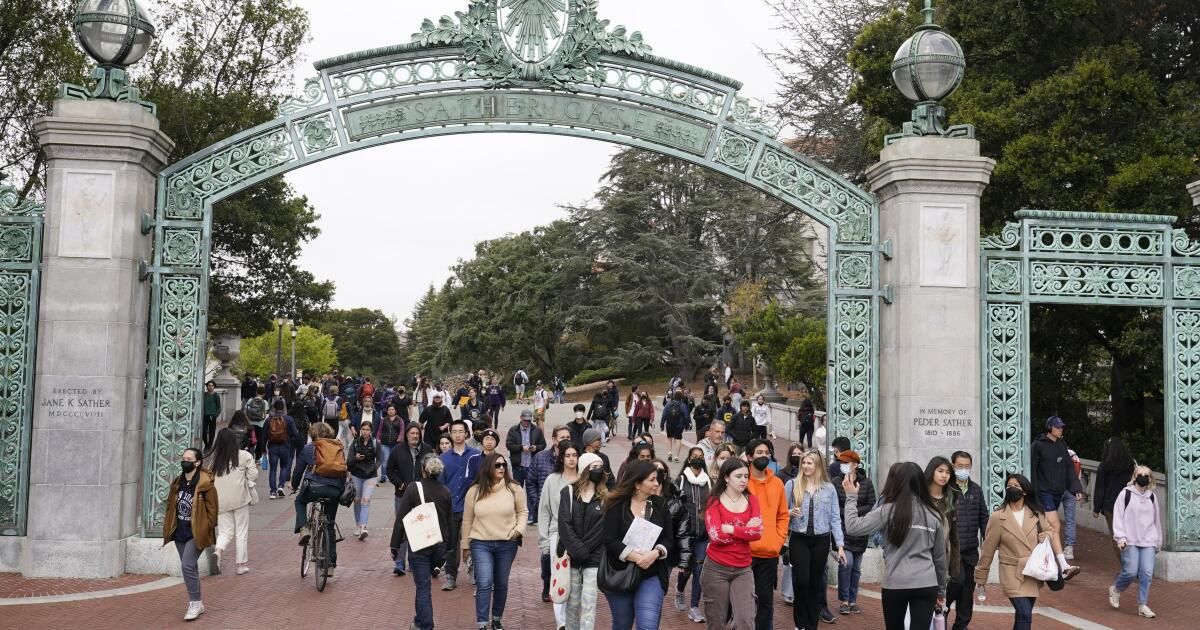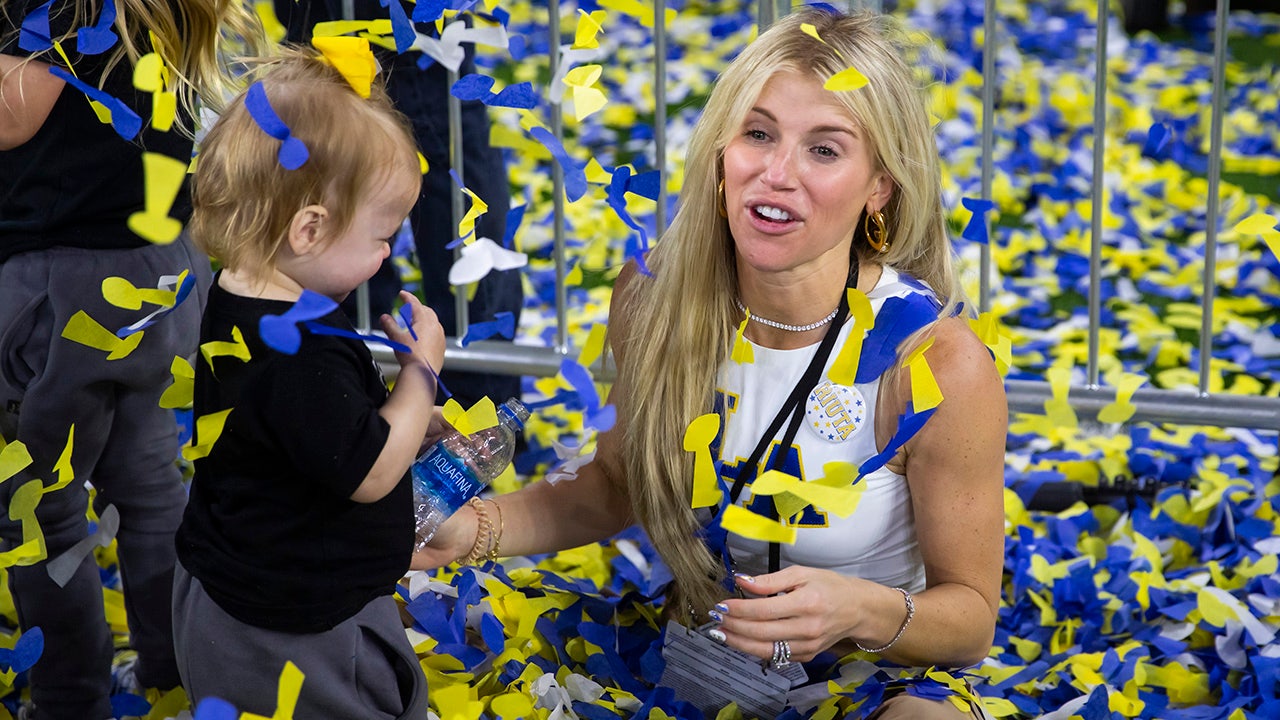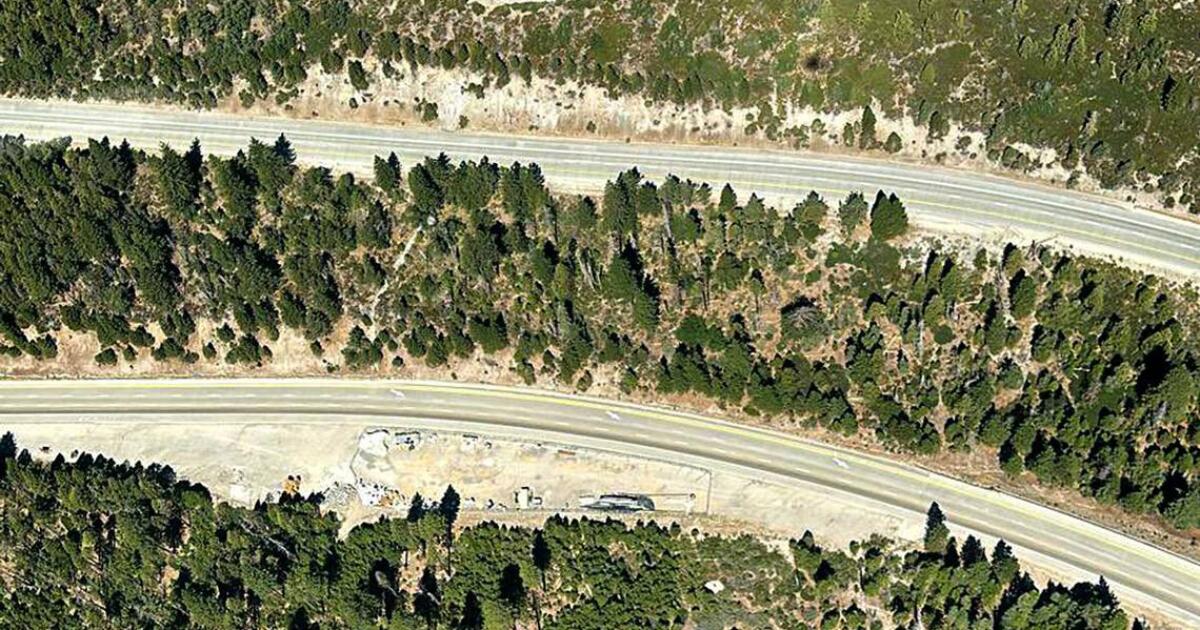California universities are facing intense backlash for handing over their employees' personal contact information to the Trump administration as it investigates allegations of anti-Semitism on campus, raising tensions over government incursions into higher education.
At Cal State, a faculty union filed a lawsuit Friday in state court after learning that the personal phone numbers and email addresses of 2,600 Los Angeles campus employees were turned over to the Equal Employment Opportunity Commission, which is investigating employee complaints about anti-Semitism on campus. Additionally, the EEOC is contacting Jewish professors across the 22-campus system, prompting campus demonstrations against cooperation with Trump.
At UC Berkeley, protesters recently converged on campus after University of California leaders said they had turned over files from its civil rights office and incident reports from UC police containing the names and contact information of 160 faculty and staff to the Department of Education, which is also investigating alleged anti-Semitism on campus.
UC-wide Faculty Senate leaders demand to know if there have been other revelations on campus. UC has not publicly announced similar actions outside of Berkeley, but has not denied the possibility..
Governor Gavin Newsom has intervened. The governor said he received a report last week from UC leadership on the data release that made a “compelling case” that UC was legally obligated to share information with the government. Newsom said he was still “reviewing” the report. The governor also said he could similarly examine the CSU's actions.
Federal requests for campus data are not unusual in investigations into civil rights or employment discrimination, legal experts say. But what is exceptional is the large-scale nature of the demands. The CSU was ordered by subpoena to release information about the employees. UC says it negotiated the government's requests to provide employee data (first by offering redacted files) before relenting.
The orders come against the backdrop of President Trump's aggressive campaign to force higher education institutions to align with his conservative agenda. The administration has suspended billions in research grants and offered to absolve alleged campus violations in exchange for steep fines and sweeping policy changes.
Large size and reach
Legal experts said they were not surprised that investigations were underway, citing civil rights complaints on campuses over the years and statements by the Trump administration prioritizing combating anti-Semitism.
Brian Soucek, a law professor at UC Davis, was concerned that the investigations into anti-Semitism, involving nearly all of California's public universities, were “a witch hunt.”
The EEOC has powers to subpoena relevant information necessary “to further some legal purpose,” said Soucek, who teaches equality and free speech rights. “The question is whether these [actions] They are too broad.”
Ted Mitchell, president of the American Council on Education, said that “asking for information about individuals and groups of individuals in the course of an investigation is as unusual as traffic on the 405. But it is entirely appropriate to distrust the Trump administration.” Mitchell, whose group represents 1,600 campuses, said schools are “between the proverbial rock and a hard place.”
Spokespeople for the Department of Education and the EEOC did not respond to requests for comment.
Points of view of the UC and the CSU
Caught between the government and professors are campus administrators, some of whom have expressed distrust of Trump's civil rights investigations. But they fear that resistance is not only illegal but could result in devastating funding cuts.
At recent faculty meetings, UC President James B. Milliken declined to say whether campuses other than Berkeley have shared personal information about employees or students. At a UC Academic Senate meeting Thursday, Milliken said he understood employees' concerns and argued that data sharing was routine in all presidential administrations.
He said the university was not providing lists of faculty names, but that broader documents shared with the government contained information about staff.
Milliken said UC is also working to meet data-sharing requirements under a December 2024 agreement with the Biden administration that was extended into this year.
That agreement resolved civil rights complaints – about anti-Semitism and bias against Muslim, Arab and pro-Palestinian students – on the Davis, Los Angeles, San Diego, Santa Barbara and Santa Cruz campuses. It required UC to share “a sortable electronic spreadsheet” with details about who reported civil rights complaints and against whom they were filed for the 2023-24 and 2024-25 academic years.
“Failure to comply with government oversight could result in a very significant loss of funding, potentially jeopardizing tens of thousands of jobs, the education of our students, the research careers of thousands of faculty, and the care provided by our healthcare enterprise,” Milliken recently wrote to campuses.
Administrators of both systems said they tried to resist or minimize government requests and have made progress to protect privacy while complying with the law.
At CSU, officials told the EEOC that the Los Angeles campus would only hand over publicly available data, such as university email addresses. But then the campus was subpoenaed to obtain personal data.
During the spring, the EEOC also subpoenaed UC for information about hundreds of employees who had signed letters in 2023 and 2024 expressing concern about the Oct. 7, 2023, Hamas attack on Israel and the campus climate for Jews, according to professors contacted by EEOC investigators who they said briefed them on the legal order.
The EEOC's systemwide CSU investigation has not yet involved a subpoena for other Cal State campuses.
Tensions grow
Faculty, staff, students and unions have responded, saying university leaders should have rejected the government's demands, moves that many say weaponize accusations of anti-Semitism for ideological purposes.
“Instead of taking a stand against an authoritarian regime, CSU leaders have chosen to be complicit,” said the California Teachers Association, which represents 29,000 employees.
The union's lawsuit in state court asks a judge to order CSU to avoid disclosing union members' personal information in response to federal subpoenas without notifying affected employees and offering faculty the opportunity to reject the request.
Peyrin Kao, a pro-Palestinian electrical engineering and computer science professor, was among those notified by UC Berkeley that their names were in files turned over to the government.
“They didn't tell me why they reported me,” said Kao, who suspects the move was related to complaints in 2023 about an optional lecture he gave against Israel's war in Gaza and UC's investments in arms companies. After the conference, the university warned him about a possible violation of a policy against “political indoctrination.”
“Showing everyone that they can sue them for pro-Palestine speech has a chilling effect,” Kao said.
Jewish voices
Ryan Witt, president of the CSU Channel Islands chapter of Students for Justice in Palestine, agreed. Witt, who is Jewish and organized a recent protest against the CSU's research and “repressive” free speech policies, considered anti-Semitism not a “major issue” on campus.
Other members of the Jewish community elsewhere disagreed.
Jeffrey Blutinger, director of Jewish Studies at Cal State Long Beach, filed a complaint with the Equal Employment Opportunity Commission against the university.
(Gary Coronado/For The Times)
Referring to Trump's higher education policies and anti-Semitism, Cal State Long Beach Jewish Studies professor Jeff Blutinger said he “should not be required to choose which threat I ignore.”
Blutinger made a report last summer to the commission about a February 2024 incident in which police shut down a guest lecture he presented at San Jose State University after protesters demonstrated in the hallway outside the classroom. He blamed the university and the police for failing to protect his right to speak about Israelis and Palestinians.
But he said the EEOC investigator he spoke with last month told him the investigation was not linked to that complaint, which was closed because it was too old. Instead, it was a May 2024 public letter to CSU leaders that Blutinger signed, expressing concern for the “well-being of Jewish and Israeli students, staff, and faculty.”
Another signatory the EEOC contacted last month is Arik Davidyan, an assistant professor of physiology at Sacramento State University. Davidyan said he told the investigator that “our administration has worked hard with the Jewish community to address our concerns.”
Address discrimination
Some UC and CSU leaders have expressed frustration, saying that efforts to combat discrimination and anti-Israel sentiment have gone unnoticed by the government.
At UC, protest rules have been revamped with bans on camping, wearing masks to conceal identity while breaking the law, and boycotts of Israel by the student government. New training programs on anti-Semitism are underway.
CSU also revamped protest policies and spent nearly $16 million in the last fiscal year to expand civil rights programs systemwide and at the university level. In the coming months, it will launch a new case management system to track discrimination complaints.
“We are working as hard as we can to address anti-Semitism and any of the protected signature discrimination issues that may arise,” said Dawn S. Theodora, interim executive vice chancellor and general counsel for the system. “We take it very seriously.”
Staff writer Howard Blume contributed reporting.












